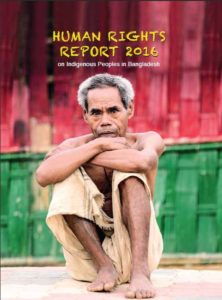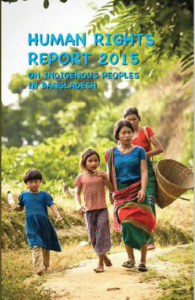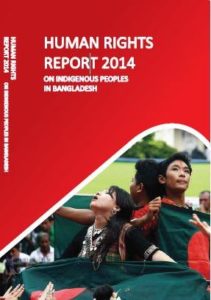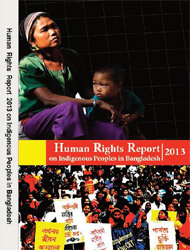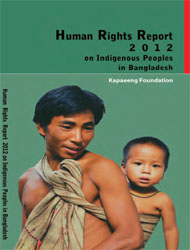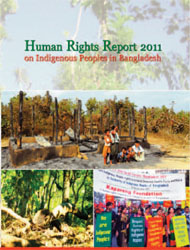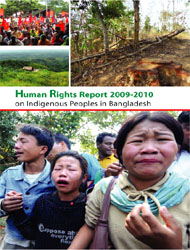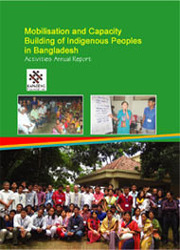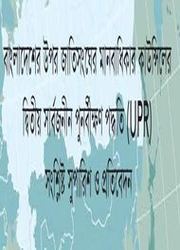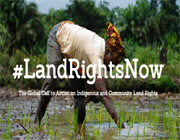Amendment of CHT Land Commission Act: A Bold Effort of the Government to the Implementation Process of CHT Accord
At last, on 1 August 2016 the Chittagong Hill Tracts (CHT) Land Dispute Resolution Commission (amended) Act 2016 has been finally approved by the Cabinet in its regular meeting in order to amend the long-awaited contradictory clauses of the CHT Land Dispute Resolution Commission Act 2001 after long delay and negotiation. Subsequently, following the final consent of the President of Bangladesh, gazette notification of the “CHT Land Dispute Resolution Commission (amendment) Ordinance 2016” has been published by Law, Justice and Parliamentary Affairs Ministry on 9 August 2016 as the parliament is not in its session now.
It is to be mentioned that the then Awami League government passed the CHT Land Dispute Resolution Commission Act in 2001 hurriedly without consultation with CHT Regional Council (apex body of special administration system of CHT) just prior to handing over the power to the Caretaker Government. Consequently, many contradictory subject matters to the CHT Accord were included in that Act. After that, Parbatya Chattagram Jana Samhati Samiti (PCJSS), CHT Regional Council and civil society of the country, on the one hand, have been demanding to amend the contradictory clauses of the Land Commission Act, and on the other hand, have been organising meetings one after another with successive governments for the same. After organising series of meetings in the Awami League regimes between CHT Regional Council and present government, the 13 points amendment proposals were adopted unanimously two times, in 2011 and 2015 respectively. However, despite such agreement, the process of amendment of CHT Land Dispute Resolution Commission Act was mysteriously hanging for long time.
Through the amendment, the act has been harmonised with the CHT Accord signed between the government of Bangladesh and PCJSS (political party of indigenous Jumma peoples in CHT) in 1997 and the powers and functions enshrined in the CHT Accord have been bestowed on the Land Commission. The CHT Accord stipulates that “The Commission shall resolve the disputes in consonance with the law, custom and practice in force in the Chittagong Hill Tracts”. In the CHT Land Dispute Resolution Commission Act adopted 2001, only “existing laws and customs in forces in the Chittagong Hill Tracts” was included. The term “practices” was not included. However, the existing “practices” is very important in land management system of CHT. The term “practices” has been incorporated in the amended Land Commission Act of 2016.
According to the CHT Accord, “This Commission shall, in addition to early disposal of land disputes of the rehabilitated refugees, have full authority to annul the rights of ownership of those hills and lands which have been illegally settled and in respect of which illegal dispossession has taken place”. However, in the Land Commission Act of 2001, only the phrases “disposal of land disputes of the rehabilitated refugees” were included. The resolution of “those hills and lands which have been illegally settled and in respect of which illegal dispossession has taken place” was not included. There are many land disputes in regard to disputes of illegal “settlement” and “occupation” in CHT other than land disputes of the repatriated tribal refugees. In the amended Land Commission Act 2016, land disputes associated with illegal “settlement” and “occupation” has been incorporated.
In the Land Commission Act of 2001, the Chairman of the Commission was given excessive and autocratic power through the phrasings “Chairman shall take decision on the basis of discussion with other members present on the areas of activities stated in section 6(1) and under related areas unanimously, but if the decision is not unanimous, in that case, his decision shall be treated as the decision of the Commission”. The clause of the Land Dispute Resolution Commission Act 2001 which bestows the unitary and dictatorial power to the Chairman of Land Commission has been amended and the decision making process has been made more democratic in which the following phrases have been incorporated- “the decision of the majority members of the Commission including the chairman shall be treated as the decision of the Commission”. This provision of the Land Commission Act for decision making is made in accordance with the procedure of full bench in appellate division of the Supreme Court in which verdicts are pronounced based on opinions of the majority jurists.
In the amended Land Commission Act, in order to fulfilling the quorum in the meeting of the Commission, instead of “the chairman and another two members”, the presence of “the chairman and another three members” has been incorporated in the provision and thus, the functions of the Commission have been made more democratic, accountable and transparent. Moreover, in this amended act, it is incorporated that the secretary, officers and employees of the Commission shall be appointed from permanent residents of CHT, giving priority to the tribal persons of the Hill districts, through which the rights of the permanent residents of the CHT regardless Jumma people and Bengali people have been ensured in employment of the Commission.
The amendment of the CHT Land Dispute Resolution Commission Act is a bold effort of the government in implementing the CHT Accord. Bangladesh government brought about a major change to the law concerned aiming to put an end to the land dispute problems in CHT. Briefing reporters after the meeting, Cabinet Secretary M Shafiul Alam said, the draft bill incorporated proposals from a resolution signed between the government and the PCJSS at a meeting on January 9, 2015 at Chittagong Circuit House. He also said all of the 14 proposals for amendment placed before the government have been accepted, citing the development “significant”. The following clauses in the Part D of the CHT Accord of 1997 regarding resolution of land disputes in CHT:
“4. A Commission (Land Commission) shall be constituted under the leadership of a retired Justice for settlement of disputes regarding lands and premises. This Commission shall, in addition to early disposal of land disputes of the rehabilitated refugees, have full authority to annul the rights of ownership of those hills and lands which have been illegally settled and in respect of which illegal dispossession has taken place. No appeal shall be maintainable against the judgement of this Commission and the decision of this Commission shall be deemed to be final. This provision shall be applicable in case of Fringe-lands.
- This Commission shall be constituted with the following Members: (a) Retired Justice; (b) Circle Chief (concerned); (c) Chairman/Representative of the Regional Council; (d) Divisional Commissioner/Additional Commissioner; and Chairman of the District Council (concerned).
- (a) The tenure of office of the Commission shall be three years. But its tenure shall be extendible in consultation with the Regional Council. (b) The Commission shall resolve the disputes in consonance with the law, custom and practice in force in the Chittagong Hill Tracts.”
The Land Commission has been formed in accordance with these provisions. Anwarul Haque Chowdhury was made firstChairman of the Commission appointed on 3 June 1999. But he passed away on 6 December 1999 before taking his offfice. Later, on 5 April 2000, retired Justice Abdul Karim was appointed to the post. He assumed the office on 12 June 2000. Since then he visited his office only once in Khagrachari hill district. Later, he too resigned the post on health ground. Since then the post remained vacant for around one and half year. After assuming the office, the BNP-led four-party coalition government appointed retired Justice Mahmudur Rahman on 29 November 2001 without any consultation with the PCJSS and CHT Regional Council. He too passed away in November 2007. Despite repeated demand from CHTRC to appoint chairman of the Land Commission, the Caretaker Government led by Dr. Fakhruddin Ahmed did not take action to this effect.The Awami League-led present grand alliance government appointed retired Justice Khademul Islam Chowdhury as the chairman of the Land Commission on 19 July 2009. After ending the tenure of last Chairman Justice Khademul Islam Chowdhury on 18 July 2012, the post of Chairman of Land Commission remains vacant for more than two year. At last, the government appointed retired justice Anowar-ul-Hague, as Chairman of the Commission on 7 September 2014. However, due to non-amendment of the CHT Land Commission Act, the CHT Land Dispute Resolution Commission remains dysfunctional and ineffective as it has failed to resolve any dispute in last 16 years.
It is because of non-settlement of the disputes over the lands, every now and then, conflicts and communal riots are being occurred in CHT centering the issue of the land disputes and the process of forcible occupation of lands belonging to theJummas is going on unabated. It is hoped that this amendment of the Land Commission Act paves the way for proper resolution of land disputes and restitution of dispossessed land to the indigenous peoples.



